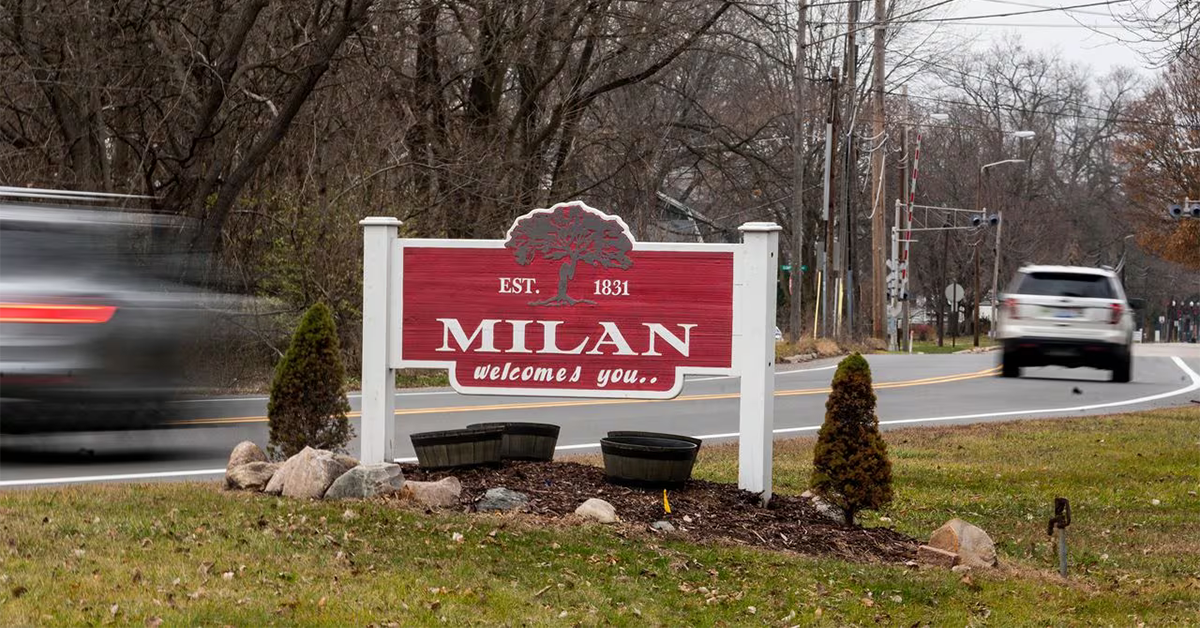Michigan’s Social Equity Grant Program: Supporting Cannabis Industry Growth

The Cannabis Regulatory Agency (CRA) of Michigan has recently announced the launch of its new Social Equity Grant Program. This initiative is a significant step forward in the agency's ongoing efforts to support and develop its Social Equity Program, which has been shaped through extensive dialogue with industry stakeholders and program participants.
Brian Hanna, the Executive Director of the CRA, expressed his enthusiasm about the program, acknowledging the dedication and investment of social equity licensees in their cannabis businesses. He anticipates the grants will provide a substantial boost to these businesses, benefiting not only the licensees but also their employees and local communities.
Senator Sarah Anthony of Lansing, who played a pivotal role in securing social equity funding in the state budget, highlighted the importance of this financial support. She emphasized the need to assist those impacted by cannabis prohibition and noted that these funds are crucial for helping social equity participants expand their businesses and contribute positively to their communities.
The Social Equity Grant Program offers financial assistance in several key areas:
- Employee Education: Funds can be used for educational courses relevant to the business, provided by accredited institutions.
- Business Needs: These funds are allocated for compliance with licensing and regulatory requirements.
- Community Investment: Grants can be used for contributions to local organizations, non-profits, and charities that have a positive impact on the community.
To qualify for this grant, applicants must hold a valid adult-use license issued by the CRA, have a majority ownership by eligible Social Equity Program participants, and be certified in the CRA's Social Equity All-Star Program.
The application period for the 2024 Social Equity Grant Program is open from December 1st, 2023, to January 26, 2024. Applications must be submitted via email by 5:00 pm on January 26th, 2024, with detailed instructions available on the CRA website.
Each eligible entity can receive only one grant, regardless of the number of licenses held. The total grant pool of one million dollars will be distributed equally among approved applicants. For example, if there are 100 grantees, each will receive $10,000.
Social Equity Program licensees not yet involved in the CRA's Social Equity All-Star Program can contact [email protected] for details on participation. This step is a prerequisite for eligibility in the Social Equity Grant Program.
Holly Village Council's Marijuana Retail Licensing Decision Upheld in Court

In June 2022, Holly Village Council authorized two marijuana retail licenses following a rigorous selection process, with The Brand Labs and Lume Cannabis Co. emerging as the successful applicants. This decision was grounded in the strict adherence to the 11 criteria outlined in Ordinance 468, which guides the village council's licensing decisions. During the council meeting, a roll call vote was conducted, wherein each council member announced their top two choices, leading to The Brand Labs and Lume Cannabis Co. being the top contenders, receiving six and four votes respectively.
Had there been a tie, the tied applicants would have been invited to present their cases in further detail at a subsequent council meeting. The locations for these new businesses were also confirmed, with The Brand Labs set to occupy a former auto dealership building near the Dollar General Store, and Lume Cannabis Co. opening its doors on Grange Hall Road.
However, the licensing process faced legal scrutiny when Green Stones, Inc., an unsuccessful applicant, filed a complaint in the Oakland County Circuit Court. The complaint alleged that Holly Village Clerk Deborah Bigger and the council engaged in a non-transparent and subjective selection process, contrary to the requirements of the ordinance. Green Stones sought a Writ of Mandamus, compelling the council to reevaluate its application in line with the ordinance.
The complaint listed several counts, including a petition for Writ of Mandamus, superintending control, violations of due process and equal protection of the law, and a request for injunctive relief. After a series of legal deliberations, the court sided with the defendants on the first two counts and noted ongoing negotiations regarding the remaining issues. The court found the application process to be aligned with the government's legitimate purpose of licensing a marijuana retail facility and did not find evidence of arbitrary council actions or disparate treatment.
The request for injunctive relief was also dismissed, as Green Stones failed to establish viable legal claims against the defendants. Finally, on December 8th, the court ordered the dismissal of the case. The legal proceedings incurred a total cost of $6,641 to Holly Village, as reported by Village Manager Jerry Walker.
North Coast Cultivators Expands Operations in Marquette with Class C License

Marquette's cannabis industry is set to experience significant growth, following the Marquette City Planning Commission's recent approval of a Class C Marijuana Grower license. This milestone was achieved by North Coast Cultivators, a prominent player in the Upper Peninsula's marijuana market, operating from 1917 Enterprise St. North Coast Cultivators, known for supplying cannabis to local dispensaries such as the Fire Station, Melo Cannabis, and Whacky Jackz, is poised to expand its cultivation capabilities substantially.
This expansion, moving from a Class B to a Class C license, allows North Coast Cultivators to grow a larger number of plants. This increase in production capacity is seen as a crucial development for the company in maintaining its competitive edge in the rapidly evolving cannabis industry.
Meghan Poglese, co-owner of North Coast Cultivators, expressed optimism about the new license, highlighting its potential to introduce a wider variety of cannabis strains and meet consumer demand more effectively. "This is a significant step forward in diversifying our strain offerings and ensuring our products excite our customers," Poglese stated.
While the final steps of securing the license with the State of Michigan are still underway, North Coast Cultivators anticipates initiating the cultivation of new plants within the next 30 days, marking a new chapter in the company's growth and the region's cannabis industry.
Judge Upholds Milan's Marijuana Permitting Procedures

In a significant legal development, Milan, Michigan's administration has upheld its marijuana dispensary permit awarding process in court. The Washtenaw County Trial Court, under Judge Julia Owdziej, ruled in favor of the city, resolving a dispute initiated by a cannabis company, HQP Retail II, LLC, which operates as Hayat. The company had contested the allocation of the city's exclusive two dispensary permits, alleging procedural discrepancies.
On December 8th, Judge Owdziej endorsed the city's approach by granting Milan's motion for summary disposition. This decision effectively dismissed the legal challenge brought forth by Birmingham-based HQP Retail II, LLC, in July. The contention revolved around the company's claim that the permit allocation process, as conducted by Milan City Council on July 5th, was flawed, particularly in the scoring of applications.
City Administrator Jim Lancaster, addressing the ordinance's goals, emphasized that the selection process was strategically designed to integrate the best-fit models into Milan's economic development plans. The city, opening its doors to the marijuana industry in 2022 for the first time, introduced a point system to objectively assess and select two proposals that best aligned with the city's criteria.
Under these regulations, preference was given to proposals targeting development of vacant or blighted properties and those suggesting mixed-use structures combining commercial or residential spaces. Lancaster noted, "We received four commendable proposals, but the ordinance limited us to select only two based on our point system."
The permits were ultimately awarded to Oz Cannabis and Green Ink 420. Oz Cannabis proposed to renovate a coin-operated laundromat and car wash at 1132 Dexter Street. Green Ink 420 planned a strip mall-style development with commercial spaces and apartments adjacent to Love's Travel Stop on Plank Road.
HQP, which ranked third in the scoring process, proposed a new building on 800 Dexter Street near Dollar General, featuring a cannabis shop with an additional drive-thru style restaurant. Despite their proposal, HQP alleged irregularities in the review process and accused the city of violating Michigan's marijuana regulations and the state Open Meetings Act through undisclosed meetings that allegedly skewed the scoring in favor of their competitors. The city refuted these claims, stating the scoring process was individually handled by the city administrator, and as such, the Open Meetings Act did not apply.
Judge Owdziej's ruling dismissed HQP's motions and closed the case, validating the city's procedural integrity. Looking ahead, Lancaster shared that both Oz and Green Ink are advancing through the necessary approvals to commence their projects. Oz Cannabis has already received planning commission approval and is progressing towards construction. Green Ink is expected to present its plans to the commission soon, with significant progress anticipated on both sites during the 2024 construction season.
Metro Detroit Communities Weigh Economic Benefits and Challenges of Recreational Marijuana

In a significant development, four prosperous communities in the metro Detroit area—Grosse Pointe Park, Keego Harbor, Rochester, and Birmingham—recently voted against allowing recreational marijuana sales. This outcome represents a notable setback for advocates of recreational marijuana in Michigan, who argue that access to legal cannabis remains limited, especially in the outer suburbs of Detroit. Despite Michigan legalizing recreational marijuana in 2018, a mere fraction of its municipalities, less than 10% according to the latest figures from the state's Cannabis Regulatory Agency, permit recreational marijuana businesses.
Denise Pollicella, founder of Cannabis Attorneys of Michigan, highlighted a stark division in attitudes towards cannabis between wealthier metro Detroit communities and those facing economic challenges. Affluent areas often oppose cannabis businesses, citing a lack of necessity for the economic and tax benefits these enterprises could bring. This contrasts sharply with less affluent communities, where older, sometimes blighted, buildings and distressed areas might benefit from the revitalization that cannabis businesses could offer.
Grosse Pointe Park Mayor Michele Hodges commented post-election, noting that their community feels self-sufficient without cannabis businesses. Hodges emphasized that cannabis products are readily accessible in their area, including through delivery services, suggesting a perceived lack of need for local dispensaries.
The reluctance of some communities to allow cannabis sales is partly influenced by legal concerns. As Pollicella pointed out, cities like Detroit have faced numerous lawsuits while establishing their recreational marijuana ordinances. These legal challenges can cause significant delays; in Detroit's case, they postponed the start of recreational marijuana sales for years. Even after overcoming these hurdles, Detroit continues to grapple with litigation, such as a recent lawsuit concerning the location of a marijuana facility near a school.
Pollicella observed that fear of litigation is a major deterrent for municipalities considering the legalization of recreational marijuana businesses. However, she noted that this trend is diminishing and suggested ways to avoid legal complications, such as not imposing a cap on the number of available licenses.
The decision to opt out of recreational marijuana commerce has fiscal implications. Over 1,300 Michigan communities that have chosen not to allow these businesses are consequently not receiving tax revenue from marijuana sales, which is levied at 10%. In the fiscal year 2023, this tax generated a substantial $266.2 million, marking a near 50% increase from the previous year. This revenue is distributed among the communities and counties hosting dispensaries, Michigan's school aid fund for K-12 education, and the state's transportation fund.
An inquiry into how communities with legal recreational marijuana sales utilize their tax revenue revealed diverse approaches. Hazel Park, an early adopter of recreational marijuana sales, directs its revenue towards pension obligations. In contrast, cities like Ferndale, Hamtramck, Inkster, Lake Orion, and Coldwater channel the funds into their general budgets, supporting various municipal services including police, fire, and parks and recreation.
For some municipalities, the revenue is a welcome boost. The city of Wayne, for instance, found the additional $207,364 from four dispensaries earlier this year beneficial for its financially distressed general fund. Similarly, Madison Heights uses the revenue to fund general services, with added benefits from property investments increasing the taxable value and hence the tax revenue.
In Center Line, Macomb County, the new revenue source has enabled the city to undertake community projects without raising taxes, such as improvements in recreational parks, municipal complexes, and library facilities. The Village of Oxford has utilized its share of the revenue to expand its police force, enhancing community safety.
However, not all communities see a significant impact from this revenue stream. Lincoln Park's City Manager James Krizan noted that for them, the revenue from marijuana sales, although helpful, represents only a small portion of their total budget and is not transformative.
This diverse array of responses from Michigan communities underscores the complex interplay between economic interests, legal considerations, and community values in the ongoing debate over recreational marijuana. While some see it as a promising source of revenue and revitalization, others remain cautious, weighing potential benefits against concerns about community character and legal challenges.
Unpaid Debts and Legal Woes: The Closure of Bay City's Diamond Cannabis

In the heart of Bay City, the once thriving Diamond Cannabis store, a venture of Southfield-based Emerald Bay Provisioning, stands empty. Opened in late 2021 at 816 Washington Avenue, this marijuana retailer was initially met with positive customer feedback. However, in a stark turn of events, it has become emblematic of a growing concern in Michigan's $3 billion marijuana industry: businesses abruptly closing, leaving a trail of unpaid debts and legal complications.
Diamond Cannabis, initially backed by investors Michael Yaldo, Omar Salah, and Ramia Kirma (the latter no longer associated as per a 2023 lawsuit), showed early signs of success. But by mid-November 2023, the store was deserted, with only remnants of its past - a ladder, some boards, and rolling paper stickers on windows - hinting at its former life. The neighboring businesses noticed the exit during the summer, marking a silent end to what was once a bustling retail space.
This closure isn't an isolated incident in Bay City, where Diamond Cannabis joined a list of eleven other marijuana retailers that have ceased operations, according to the Cannabis Regulatory Agency (CRA). The issues came to a head with the filing of three lawsuits between December 2022 and June 2023, seeking over $1 million in unpaid debts, including nearly $50,000 in unpaid invoices. Moreover, CRA complaints in March and April alleged the business misrepresented THC potency, made unreported sales, and failed to maintain necessary video surveillance records.
One notable lawsuit was filed by JIS, operating the cannabis brand Bowhouse, known for "Michigan grown craft cannabis." Represented by attorney Jacob Kahn, the lawsuit details how Diamond Cannabis, after finding Bowhouse on the online marketplace Leaflink, ordered nearly $30,000 worth of products but failed to pay upon delivery. Despite a consent agreement for monthly installments, the payments ceased after the first installment, leading to a default judgment by the court.
Diamond Cannabis' story reflects a broader trend in Michigan's marijuana market. Nearly 14% of the state's marijuana retailers have closed or not renewed licenses since December 2019. This has resulted in numerous businesses grappling with unpaid debts, a challenge highlighted by attorneys Denise Policella of Cannabis Attorneys of Michigan and others. Policella emphasizes the cascading effect of these financial troubles, particularly on smaller businesses.
The CRA has recognized this growing issue and is considering rules to deny licenses or renewals to businesses with civil judgments or court orders related to unpaid debts. This move aims to ensure financial responsibility within the industry.
The root of these challenges, according to Patrick Frakes of RAIR, lies in the market's unexpected evolution. RAIR, which operates a grow facility and retail shops, has experienced the problem firsthand, with $218,000 in past due invoices at one point. Frakes points to "price compression" and market saturation as primary factors driving down prices and putting strain on businesses.
Collecting outstanding debts remains a significant hurdle, as evidenced by the experiences of attorney Kahn and his clients. Even with court judgments in hand, recouping losses from businesses like Diamond Cannabis, which shut down without assets or apparent funds, proves daunting.
Diamond Cannabis' rapid rise and fall serve as a cautionary tale in Michigan's burgeoning marijuana market, highlighting the need for more stringent financial practices and regulatory oversight to ensure stability and fairness in this evolving industry.


 Helpful Links
Helpful Links